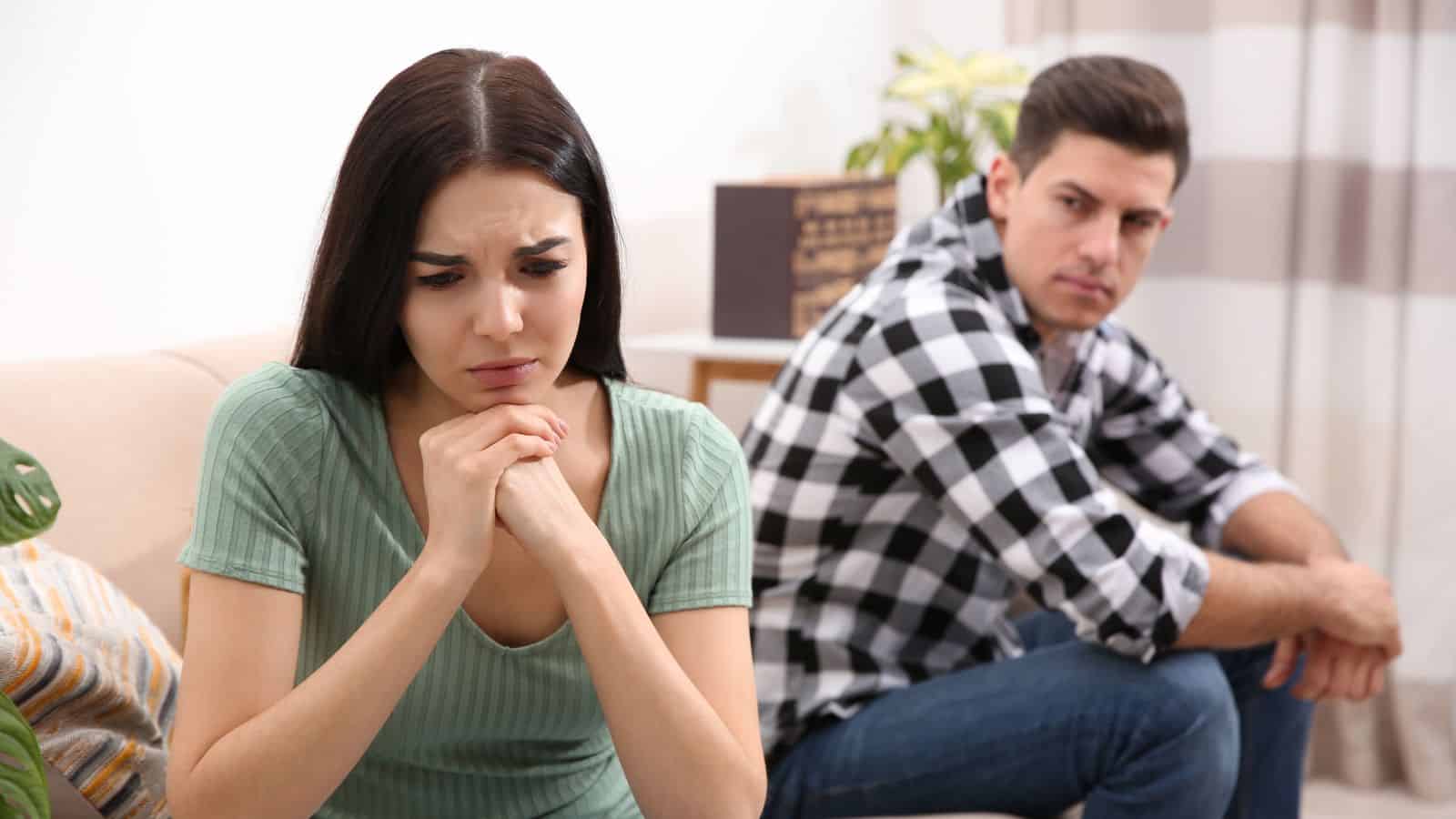In a relationship, there are often subtle hints that can make you wonder if your partner is truly the right match for you. The right partner will support your growth, let you be your authentic self, and collaborate with you as a strong team. Here are 19 signs that might indicate your partner isn’t “the one.”
Difficulty Finding Common Interests

Sometimes it can be workable if two people have different hobbies in a relationship, but there still needs to be some common ground. For example, Psychology Today writes, “If a couple is unable to tolerate the time and money a partner puts into a hobby, it can become a source of conflict.”
Different Expectations for the Future

If your plans for the future don’t align, then it can be a sign you’re in the wrong relationship. It’s normal for people to have different dreams and goals, but they still need to work in a relationship. This is also the case if a partner is unwilling to compromise on different expectations for the future.
Controlling Behavior

Sometimes it’s hard to distinguish between a person showing concern and a person being controlling. According to the National Legal Service, “a controlling person may exhibit extreme jealousy, frequently accuse their partner of infidelity, or attempt to control their interactions with others.” This can have a huge impact on a person’s freedom and shouldn’t be accepted.
Refusal to Address Mental Health Issues

If a person is struggling with mental health issues in a relationship, a partner should be there to support them. This can be anything from being there to listen to them to supporting them with healthcare appointments. There can be huge consequences if a partner doesn’t feel supported while suffering.
Dishonesty

Trust is a fundamental part of any relationship. If you can’t trust your partner, then it’s a serious issue. Signs that a person is being dishonest include frequent lies, and these can have severe implications for the relationship. Steps can be taken to address trust issues, which can include therapy or lots of communication and changes.
Incompatibility in Values and Beliefs

Baggage Reclaim writes that you may have lots in common with your partner, such as attraction and common interests, but if you don’t share the same common values, then it means you’re incompatible. Values and beliefs can include things such as financial attitudes, religious beliefs, and political views.
Opposing Life Outlooks

Sometimes it can be hard to have a pessimistic partner if you’re an optimist and vice versa. A person’s outlook affects their decision-making and everyday interactions. Because outlooks are such an integral part of everyday life, it’s important you both think the same.
Lack of Authenticity

You need to feel comfortable enough to be yourself in a relationship. If you have to alter yourself for your partner, then it can be a sign that the relationship isn’t for you. There can be many long-term effects that come from not being yourself, including mental health issues.
Desire for Change in Partner

If you want your partner to change, then it should be a mutual feeling in terms of growth. If you want your partner to change their personality or everyday behaviors, then it could be the case that you aren’t compatible as a couple.
Emotional Neglect

Signs of emotional neglect can show through interactions and communications. You may feel like your partner isn’t there for you emotionally. Signs of emotional neglect include feeling alone in a relationship, your partner shutting down when you want to talk, and not knowing what your partner wants from you.
Lack of Conflict Resolution Skills

All relationships are going to have conflict in them; no two people are exactly the same or think the same. However, the right partners will have arguments and then be able to grow from them. If your partner struggles to resolve issues in an argument, then they may not be “the one.”
No Meaningful Conversations

You should feel comfortable enough to be able to engage in deep and meaningful conversations in a relationship. Conversations shouldn’t just be about things like what to buy from the grocery store or what the plans are for the weekend. Meaningful conversations should feel natural and progressive.
Your Partner Isn’t Your Confidant

It’s important to be your partner’s go-to person in a relationship and they should be yours. If you find yourself going to a friend more than your partner, then it can mean that they aren’t the one. This could be for reasons like you don’t trust them or they can’t give you the support you need.
Feeling Alone Even When Together

You shouldn’t feel alone when you’re in a relationship. You should feel like you’re part of a team where you’re supported and listened to. Feeling alone can cause emotional distance, and it can mean you start to lose your connection. There are many things you can do to rekindle relationships, including therapy.
You Can’t Express Emotions

Emotional expression should come easily in a relationship and it’s a sign that you’re in the right one. If you find it hard to express emotions, then you may want to try talking to your partner about why you can’t. This can also include any discomfort that comes from displaying affection.
Resentment Building

If issues go unresolved in a relationship, then it can lead to resentment. If this happens continually, then it can be a sign of a toxic relationship. It shows that this person may not be “the one” because you can’t move past an issue. Try to find ways to address issues to avoid resentment.
Lack of Support During Crucial Moments

It’s important that you have the right amount of support when going through something crucial. If your partner isn’t there to support you, then it can make any tough moments even more difficult. If you find this regularly occurring, then it’s a sign that they aren’t “the one.”
Overdependence

Healthline tells us that emotional dependence means relying on your partner to meet nearly all your needs. This isn’t a sign of a healthy relationship, as it can cause incredible amounts of stress for a person. If you find yourself constantly relying on your partner emotionally, or the other way around, then it can be hard for the relationship to work out.
Feeling Drained

A relationship shouldn’t make you feel tired; it should do the opposite. If a relationship isn’t giving you the energy back that you put in, then it isn’t the right one for you. A draining relationship can have a negative impact on your well-being and lead to mental health conditions and stress.

